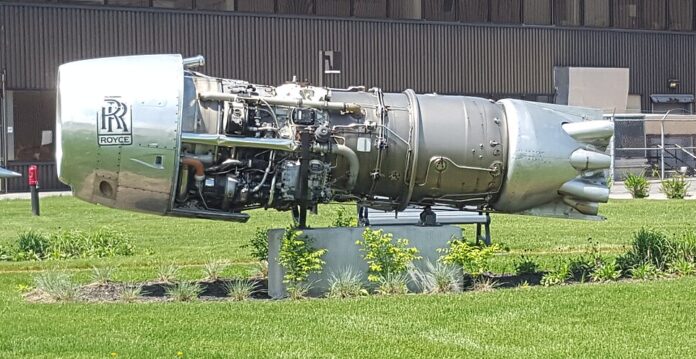British aerospace parts, including Rolls-Royce engines, to bypass US tariffs as Trump-era deal advances
British aircraft parts, including Rolls-Royce jet engines, are set to be exempt from US import tariffs under the evolving trade agreement between the UK and the Trump administration, according to senior officials on both sides of the Atlantic. The breakthrough is poised to safeguard Britain’s £40bn aerospace sector and 450,000 jobs across the country.
Howard Lutnick, the U.S. Commerce Secretary and a key architect of President Donald Trump’s revamped “America First” trade doctrine, told reporters that Rolls-Royce engines and associated aircraft components would be allowed tariff-free access to the American market. His remarks follow the signing of a preliminary “economic prosperity deal” with the UK last week.
However, the exemption was not explicitly outlined in the five-page summary released on Thursday, sparking questions about its status. UK officials say final terms are still under negotiation but insist the aerospace industry has been granted what they describe as a “specific guarantee of zero tariffs.”
Jonathan Reynolds, the UK business secretary, confirmed the reports in an interview with the Sunday Times, saying that the aerospace clause would offer “long-term certainty” to one of Britain’s most valuable export industries.
The deal could prove vital not just for the UK but also for major US firms like Boeing, which uses Rolls-Royce engines in several of its commercial airliners. American repair and maintenance hubs rely on a steady flow of British parts, many of which are not easily replaced by domestic alternatives.
“This is a win-win for both sides,” said a senior aerospace executive close to the talks. “The US gets continued access to world-class components, and British jobs are protected from unpredictable tariff hikes.”
On Thursday, Lutnick also revealed that a major UK firm was preparing to buy $10bn (£7.5bn) worth of Boeing aircraft — a deal later confirmed by British Airways’ parent company, IAG. The announcement is seen as a goodwill gesture to strengthen economic ties amid renewed diplomatic efforts between Washington and London.
The aircraft exemption follows hard on the heels of other key concessions in the deal, notably in the automotive and steel sectors. The Trump administration agreed to reduce car tariffs from 27.5% to 10% on up to 100,000 British-made vehicles annually. Steel exports will now face no tariffs at all.
Embed from Getty ImagesPeter Mandelson, Britain’s ambassador to the US, said the car tariff reduction alone had saved hundreds of jobs at Jaguar Land Rover’s facility in the West Midlands, which had faced export bottlenecks under previous trade arrangements.
Still, there are concerns that the 100,000-vehicle quota could act as a brake on future expansion. Reynolds and Prime Minister Keir Starmer are lobbying for a higher cap in the finalised agreement, warning that the current figure may undercut Britain’s long-term competitiveness in the US auto market.
The aerospace reprieve arrives amid a volatile backdrop. Just over a week ago, the US Department of Commerce launched a formal investigation into whether imported aircraft, engines, and components pose a national security threat. The probe focuses on overreliance on a limited number of suppliers, foreign subsidies, and alleged predatory trade tactics.
Industry lobbyists argue that the inquiry risked dismantling a 45-year-old treaty allowing duty-free trade in aircraft parts — a cornerstone of global aviation supply chains. Both Boeing and Airbus, along with a host of maintenance providers and engine makers, had warned that tariffs would cause widespread disruption and increase costs for consumers.
As of now, the UK’s Department for Business and Trade has declined to comment publicly. However, insiders believe that the government sees this aerospace carve-out as a vital early win in its bid to deepen economic ties with Washington during Trump’s second presidency.
